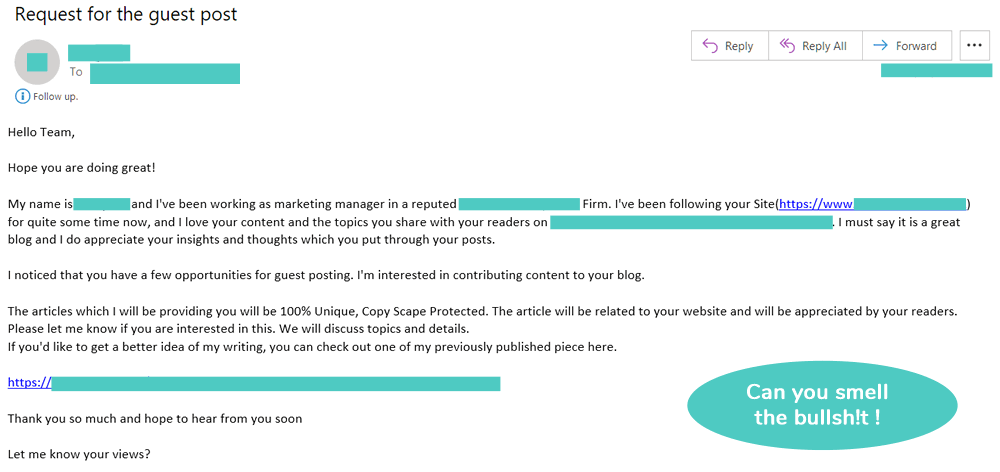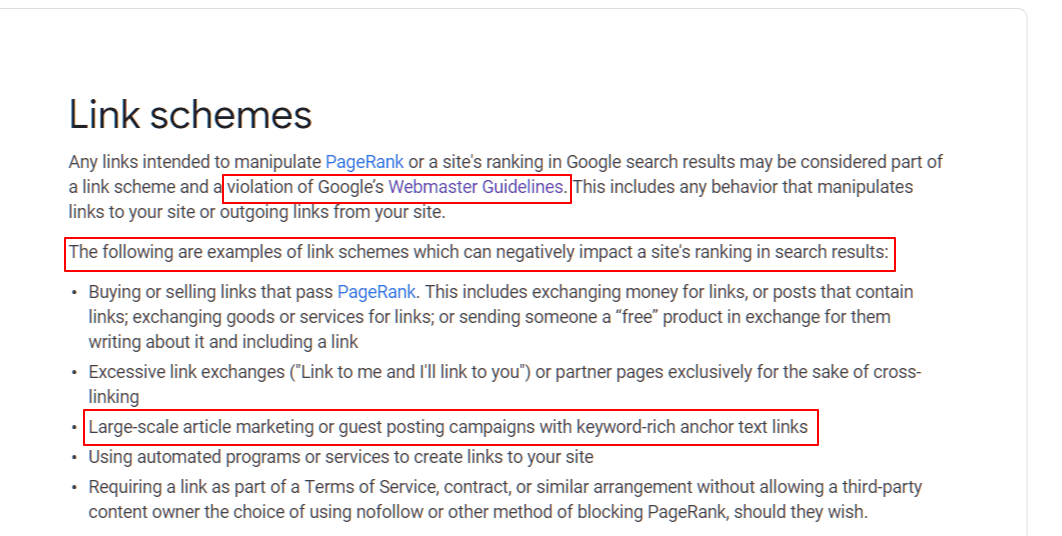Is building links using guest posts really that effective for SEO?
Attracting links to your site is one of the most important elements of search engine optimisation and also one of the most time-consuming. It amazes me that I still receive countless emails from so called SEO experts inviting me to participate in guest blog post exchanges. Some of them even offering to place content on my site totally unrelated to what we do! No wonder our industry comes under such fire.
Back to basics
Let’s go back to basics and understand the concept of linking. Linking in its simplest form is all about helping a website visitor get from one web page to another. These digital highways connect us to pieces of content and help us to achieve our online goals, whether it be to find a product, piece of news or to learn something new.
Now most of the time we know what we’re looking for online, so our session has a goal, and with that goal in mind we look to trawl the web and put our trust in navigating around websites till we achieve our goal. Sometimes it can take minutes and a straight forward visit to a search engine and a destination site, other times it can takes us hours, with a journey that takes us in and out of a number of different websites.
Now if you keep that concept in mind when thinking about link building you’ll soon realise that the ‘you scratch my back, I’ll scratch yours’ approach to building links is fundamentally flawed. Links should be awarded on merit and not through back scratching.
Seeking out guest posts is an inefficient use of your time & budget
What I am going to tell you next is going to transform the way you approach link building.
Let’s take a look at a classic guest post scenario (and BTW this is also how many agencies providing SEO services will be using up the monthly hours you pay them to do your link building)!
You first of all spend a few days researching sites that would be interested in the type of content you’re offering up. You gather the email address of the webmaster (if you can find one that is). You create a generic email like the one below, to contact each webmaster explaining that you would like to write a blog post for their site.

You go through the process of setting up a mass email marketing campaign (using a tool like MailChimp) to send out the generic email to all those webmasters.
You then sit back and wait for all the positive responses to come flooding back. Days pass by and nothing. And then on day 5 you see a reply in your Inbox. It’s from Colin’s Personal Blog and he’s delighted to have someone offer to write new content for his website, after all it hasn’t been updated for years and he can see the tumbleweed blowing across his website!
So, you write the blog post for him and send it over. It’s a poor quality article that’s been produced quickly just so you can get a link. Colin doesn’t care about the quality of your article though, so publishes your blog post and everyone’s a winner. Colin’s got some new content and you’ve got a contextually relevant back-link to your site, that also includes one of your main key phrases in the anchor text.
Now here comes the killer. You visit the site to check your link and you find your link now has a ‘nofollow’ tag attached to it:
Colin’s savvy – he’s read Google’s advice about linking:

Even if Colin hadn’t used the ‘nofollow’ tag, then it’s unlikely the link would have helped to build any authority for your site because Colin’s site itself was of low quality and had very little online authority.
The above process then gets repeated and yes you guessed it – same results. Rinse, repeat, fail. How does that saying about insanity go… Insanity Is Doing the Same Thing Over and Over Again and Expecting Different Results
Now tell me, is all that effort worth it? The other downside of guest posts and article exchanges is that they move you into grey hat SEO territory. The above and outdated technique uses tactics that sends an ‘over-optimisation’ signal to Google and that opens you up to a possible penalty.
The simple fact is this: websites that are regarded as trustworthy and high quality by Google don’t tend to accept these types of low quality guest posts. Why would they? The owners invest time and resources in producing great content and tools so they themselves can build up a positive reputation and help their visitors achieve their online goals.
A more effective approach – let your audience do the work when it comes to building links
Now consider this alternative approach. Why not spend your time (or your SEO budget) on creating compelling content or interactive tools that people will want to engage with and then naturally link to and share via social media. Not only are you more likely to get a link from a page that attracts good quality visitors, but you’ll also have created something of real value that helps to keep visitors on your site for longer and possibly increases your conversion rate. With this approach to link building you’ll generate more ‘noise’ about your website and build authority of your brand and business online. But even creating great content is sometimes not enough, so I recommend you also read Brian Dean’s article about his Skyscraper Technique.
When it comes to link building it’s better to focus on growing your brand’s reputation as opposed to growing your list of link partners. So, the message is clear: ‘quality over quantity’ is what counts when it comes to developing an effective off-site SEO strategy.



Leave a Reply
Want to join the discussion?Feel free to contribute!